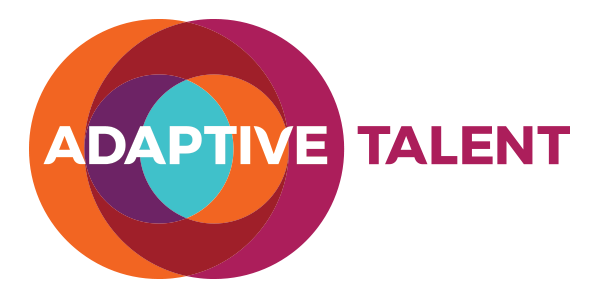I’m a big fan of Apple computers and do my best to sell my friends and family on the entire suite of products. The products are nearly always better designed, easier to use, and simply work and look better than anything out there so I feel comfortable recommending them to my loved ones. So how does Apple consistently do it? One word: culture.
Culture is the collective norms, behaviours, and ways of working that define how people behave in an organization. Powerful cultures are reinforced by leaders who embody those beliefs. The work is shaped by processes and organizational designs that reflect the values. Culture is a powerful force in attracting, retaining, and developing people who fit those beliefs. I believe there are three essential elements of culture: clarity, authenticity, and talent.
Clarity:
When an organization is small, a culture is largely a result of the personalities in the room. People navigate the individual quirks of their colleagues and intuitively understand whether a particular outsider, or other element, would work amongst the colleagues.
As organizations grow, leaders can find themselves in fire fighting mode if they have not grounded that growth in clearly articulated values and beliefs that get translated into things like work processes, rewards and recognition, organization design, leadership styles, etc. An easy test to determine whether you have a strong culture is to ask ten people in your organization about the core values and priorities. If people can tell you the values, and stories that reinforce those values, or point out processes or ways of working that embody those values, then you’ve got a great start. Here’s an example of clearly articulated beliefs from Tim Cook, Apple Computer’s COO:
“There is an extraordinary breadth and depth and tenure among the Apple executive team, and these executives lead over 35,000 employees that I would call “all wicked smart”. And that’s in all areas of the company, from engineering to marketing to operations and sales and all the rest. And the values of our company are extremely well entrenched.
We believe that we’re on the face of the Earth to make great products, and that’s not changing. We’re constantly focusing on innovating. We believe in the simple, not the complex. We believe that we need to own and control the primary technologies behind the products we make, and participate only in markets where we can make a significant contribution.
We believe in saying no to thousands of projects so that we can really focus on the few that are truly important and meaningful to us. We believe in deep collaboration and cross-pollination of our groups, which allow us to innovate in a way that others cannot.
And frankly, we don’t settle for anything less than excellence in every group in the company, and we have the self-honesty to admit when we’re wrong and the courage to change. And I think, regardless of who is in what job, those values are so embedded in this company that Apple will do extremely well.”
That’s coming from an executive in a press conference, so you can imagine that Apple has something more concrete written down, with specific examples, probably with something tied to their onboarding processes, job requirements, and talent evaluations. The stories that employees tell, or that Apple executives share within Apple, act as proof that the values are real, or authentic, which brings me to my next point.
Authenticity:
Organizational cultures fundamentally are no different than any other relationship. If you’re being honest and do what you say you’ll do, people will believe you and act accordingly. This means that leaders are a gigantic influence on a culture and nothing will kill a leader’s credibility faster or poison a culture than a leader who says one thing and does another, or who starts an initiative and then does not follow through fully.
I’ve seen tons of values statements and 90% of them are so generic that they’re useless. They need to be real and if they’re aspirational, then indicate that somehow and set objectives and involve your whole company to make them turn into a reality. Kill the old processes that don’t align with your values, or change your leadership style or priorities to make the cultural goals a reality. You can’t control a culture because it’s the collection of everyone’s individual assessments of life inside your organization, but you can lead your people differently, enrol them in new possibilities, and then walk the talk. Your culture will shift over time as people see the words actually put into action.
Talent:
Your people are the most important aspect of your culture. A well defined, credible culture will attract the right talent, filter out the wrong folks, and grant authority and status to those folks who embody the culture and deliver the results. This is critical for all leaders – you need to hire folks who are smarter than you, who completely align with the values, and who can scale for growth by scaling the capability of your people while staying true to your core values. Bad leaders slow everything down, so give people a chance to change, be honest with them and actually discuss your expectations and needs (way too many CEOs are simply conflict adverse or have trouble coaching), and then make the hard calls if necessary. It never fails – once you get rid of a low performer everything suddenly gets easier.
I think Apple is successful because all three of these elements are in place and feel very real to everyone involved. They’ll be able to survive when Steve Jobs finally leaves and it’s because they paid equal attention to the tangible and intangible aspects of leadership.
I hope this has been helpful and of course the Adaptive Talent team would welcome the opportunity to help you and your team improve your results and adaptability via our culture and organizational development consulting, communications and coaching / mentoring training, total rewards consulting, assessments, leadership coaching and development programs and retained search to help you land high impact talent.

